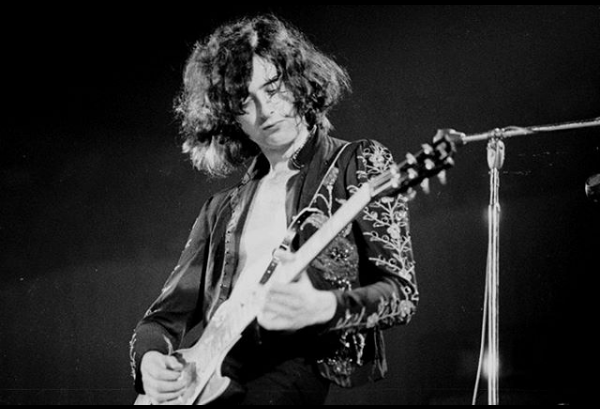To remember the good moments of live music, now that the world is far from the shows due to the social isolation to contain the coronavirus. We look back at the 10 Career-Defining Guitar Compositions Of Jimmy Page.
The Battle Of Evermore
Apart from being a wonderful song, it was also necessary to choose a song that included the acoustic and more folk facets that Jimmy Page also knew how to cultivate. Their third album had surprised their own and strangers with a turn towards their more acoustic face, showing that they were a much more versatile group than they were granted. In spite of everything, the critics continued attacking them and, taking advantage of the success of Crosby, Stills & Nash, spoke of the group having pulled towards acoustics following fashion.
Communication Breakdown
Led Zeppelin are always mentioned as precursors to heavy, but almost never as predecessors of punk. It is more when the genus exploded in 1977 they were seen as one of those dinosaurs that had to be exterminated. Few punks knew that one of their most distinctive elements, the Ramones’ guitar bursts came from a Led Zeppelin song, and none other by Jimmy Page.
Immigrant Song
Any rock fan knows what it sounds like when the Vikings carried the shout of “Valhalla, I’m coming.” Led Zeppelin delivers one of their toughest songs by opening their acoustic album. The best-oiled rock-making machine launches into battle spurred on by Plant’s screams, Page’s incredible riff, and the rhythmic precision of Bonham and Jones. Few songs have influenced later heavy metal more.
Dazed And Confused
The debut of the biggest rock band of the 70s is the definitive fusion between blues and rock to create something totally new. Jimmy Page relies mostly on other songs, mainly blues, to create these themes but the result, once played by the four members of Led Zeppelin is something of its own.
https://www.youtube.com/watch?v=ZQgYn23Xvck&t=115s
Kashmir
One of his most iconic songs and the only one that can rival Whole Lotta Love for Page’s title of Most Significant Riff. Of course, here the blues is replaced by his interest in Arab and oriental music. With an alternative tuning (DADGAD) in his second Les Paul Standard of 1959, which was purchased in 1973, Page takes the band on their strangest and most experimental journey, close to progressive music but with all the marks of the house of Led Zeppelin. The main song of the fundamental album, Physical Graffiti.
Rock And Roll
One of the biggest adrenaline rush in the history of (sorry for the obvious) rock and roll. The band was trying to finish Four Sticks when John Bonham started playing the start of Little Richard’s Keep A Knockin ‘, Page did not hesitate and pulled a Chuck Berry riff of his own.
Ramble On
John Paul Jones is Led Zeppelin’s secret ingredient to the much more volcanic Page, Bonham, and Plant, his bass lines on Ramble On are absolutely incredible and give the song much more packaging. However, without Page incredible riffs, the song would be incomplete.
https://www.youtube.com/watch?v=_284RNK8eCo
When The Levee Breaks
When The Levee Breaks is the culmination of his appropriation of old blues to turn them into something entirely his own and new, in addition to confirming John Bonham as the world’s most incredible drummer and Page as a supreme guitarist!
Whole Lotta Love
Released just a few months after its debut, Led Zeppelin II was recorded and composed on the road, using various studios in both the US and England. It’s amazing that it sounds that good but Jimmy Page proved he could do magic both on the guitar and behind the production table.
Stairway To Heaven
A song that summarizes in eight perfect minutes the best of the band, with folk and hard rock shaking hands like never before or since they have. A song that literally rises to heaven and is good enough to resist having been listened to endlessly and Wayne’s World-type memes, where it is prohibited to play it to try a guitar. A guitar that in this song is not the Les Paul with which Jimmy Page is usually identified, but his mythical Fender Telecaster of 1959 that his partner in the Yardbirds gave him, Jeff Beck.

